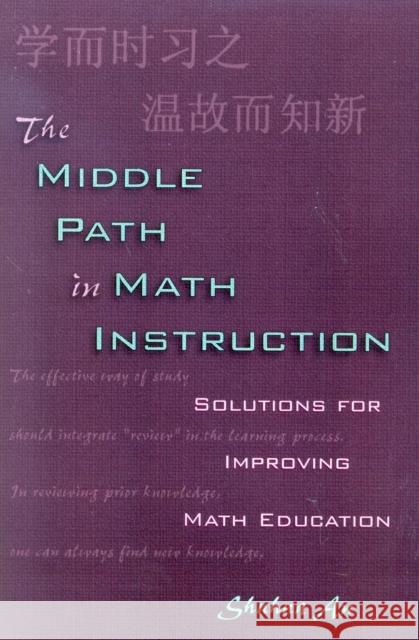The Middle Path in Math Instruction: Solutions for Improving Math Education » książka
The Middle Path in Math Instruction: Solutions for Improving Math Education
ISBN-13: 9781578860890 / Angielski / Miękka / 2004 / 236 str.
What are the effective approaches of teaching and learning mathematics? How do teachers build on knowledge of students' thinking? What knowledge is needed for teachers to teach effectively? Shuhua An answers these questions by examining the differences between the pedagogical content knowledge of elementary and middle school mathematics teachers in the U.S. and China and investigates how these differences are revealed in their beliefs, planning, teaching methods, and knowledge of students' thinking. She reveals the current dilemmas in mathematics education in the U.S and China, traces the philosophical and historical development of mathematics education in both countries, and points out that cultural factors greatly contribute to the teaching and learning of mathematics. This book describes 10 teachers with different teaching styles and strategies in actual classrooms and analyzes their beliefs. Included are comparisons and contrasts of teachers' pedagogical content knowledge in four aspects of teaching: Building on student ideas in mathematics, Addressing student misconceptions, Engaging students in mathematics learning, Promoting student thinking about mathematics. Through analyzing essential components in the above four aspects within a cultural context, this book identifies eight missing components in teachers' knowledge base which are pertinent to pedagogical content knowledge and play an important role in effective teaching. The analysis of the missing components of teacher knowledge leads to a discussion of the reshaping of teacher knowledge and gives recommendations for enhancing pedagogical content knowledge and for seeking the middle path in mathematics instruction. For mathematics teachers, pre-service teachers, and undergraduate and graduate students at colleges of education, teacher educators, researchers, school administrators, and policymakers.











